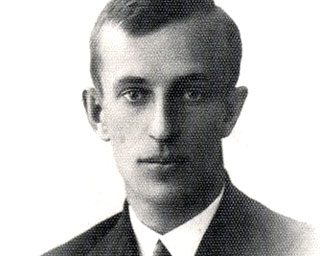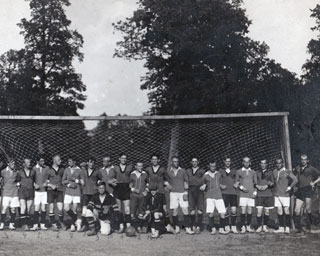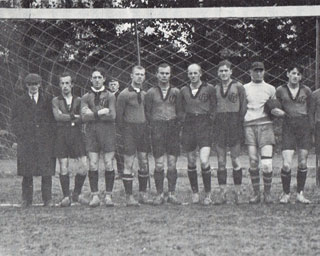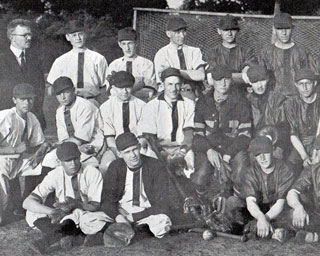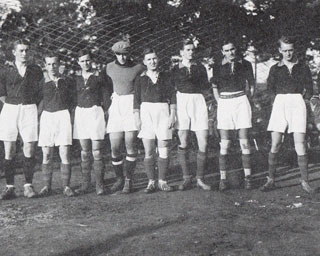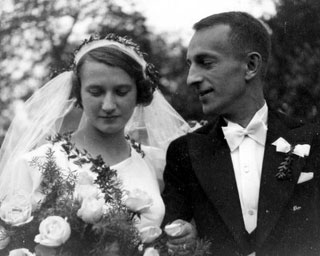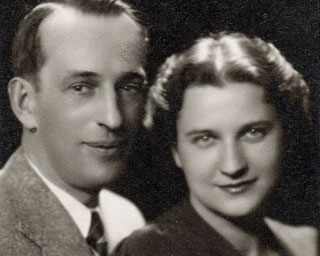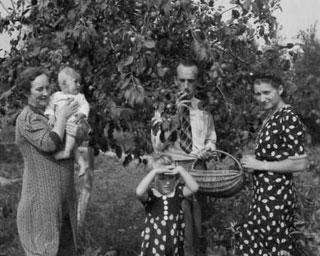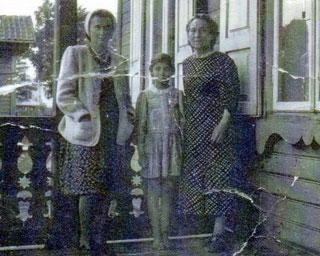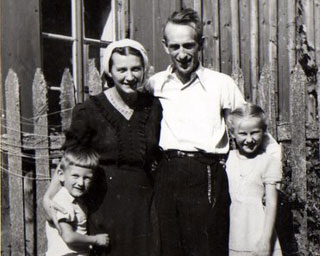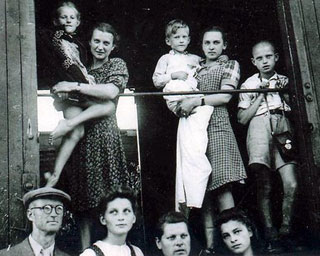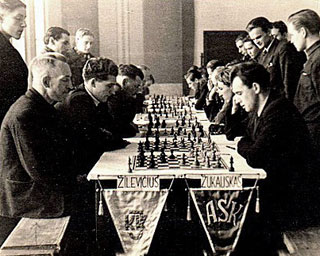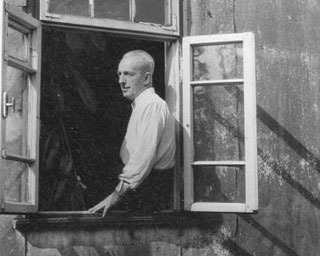Danielius Žilevičius, Ona and Adolfina Žilevičienė
Lithuania

Ona Žilevičienė (b. 1912), nee Akmenskienė, lived with her husband Danielius (b. 1900) and mother-in-law Adolfina Žilevičienė in Vilna. Ona worked as a secretary in the Ministry of Health. Danielius worked for the Ministry of Interior and played for L.F.L.S. football club, Kovno and Lithuania national team. L.F.L.S. was a Lithuanian football club based in Kovno in the years between World War I and World War II. The club was founded in 1919 and was a multicultural squad, which featured four Lithuanians, four Germans, and one player each of English, Jewish, and Serbian descent.
Every day during the period of the Nazi occupation Ona would see from her office window a group of Jews being brought in from the ghetto to wash the floors and toilets and shovel the snow from the premises and the adjoining tennis courts. After a while Ona noticed that one Jewish woman always came with a girl, who looked about four years old. Since Ona also had a four-year-old daughter, she approached the woman and introduced herself. It turne out that the woman’s name was Polia Rudnik, and her daughter’s name was Genia. From that day on Ona greeted the Rudniks whenever she saw them, always giving the girl some treat. Occasionally Polia’s husband Isaak-Avraam and their ten-year-old son Simka would also come with a group of cleaners to work at the ministry, so Ona got to know them as well.
In the summer of 1943, when the Germans started deporting the ghetto inmates to Estonia, Polia Rudnik pleaded with Ona to save Genia. Ona consulted her husband and mother-in-law and gave her consent. After a few days, at the end of the workday, she left the ministry with Genia. She was terrified as she walked through the city with Genia: she had a feeling that people around her knew that the girl was from the ghetto. After they reached home safely, Ona’s mother-in-law Adolfina undressed Genia, burnt her clothes that were full of lice, and washed her hair with kerosene. Clean and fed, the girl was ushered into the children’s room that was now all hers: the Žilevičiuses’ daughter and son were taken to Ona’s mother in Tytuvenai, near Šiauliai. It was agreed that in case there is a document inspection Genia could pass for the Žilevičiuses’ daughter, Judyta. Their neighbors and friends did not know about her presence there.
The Žilevičiuses treated Genia with genuine affection, and hoped for her that her parents survive. After the liquidation of the ghetto, in September 1943, they no longer heard from them.
Genia Rudnik stayed with the Žilevičius family until the liberation, disguised as their daughter. From time to time Ona or Danielius would go to Tytuvenai to see their children but did not bring them back to Vilna, both because of the shortage of food and the Jewish girl’s presence. In the summer of 1944, when Ona was visiting her children in Tytuvenai, the front lines drew farther west and she lost contact with her husband. Not knowing what was happening in Vilna at the time, Ona took the children and fled westwards, away from the approaching Russian troops. Several years passed before she found out that Danielius was alive, and they were able to correspond.
In the meantime, in July 1944 the Red Army liberated Vilna. Genia continued living with Danielius and Adolfina Žilevičius, now on a legal basis, but nothing was known about Genia’s parents. In 1947 the local Jewish community took the survivor away from the rescuers and entrusted her into the hands of a Jewish adoptive family. In 1957 Genia left Lithuania and two years later immigrated to Israel. She exchanged letters with Danielius until his death in 1963. Ona, who settled in the USA and shortened her surname to Zilius, found Genia (married name Gorelik) in the 2000's.
On April 26, 2006 Yad Vashem recognized Ona Zilius (Žilevičienė), Danielius Žilevičius and Adolfina Žilevičienė as Righteous Among the Nations.
Yad Vashem would like to thank Judita Clow and Jane Campbell for providing additional materials and background for this story.
